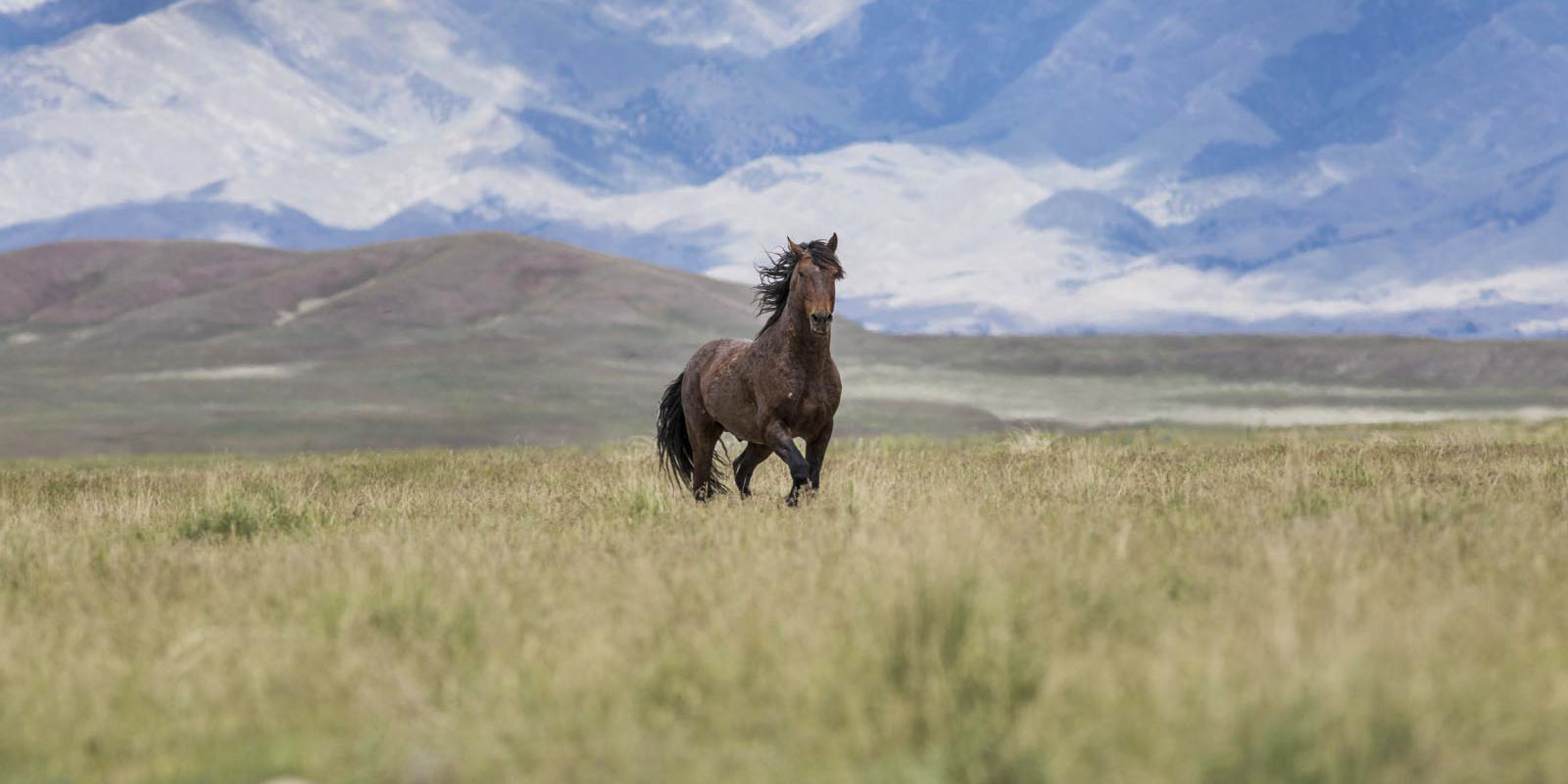September 25, 2018
(CNN) Nonprofit organizations are taking to the courts to try to stop an Interior Department project that would sterilize up to 100 wild female horses in Oregon through a procedure the groups deem "dangerous" and "inhumane."
Front Range Equine Rescue, a nonprofit organization that works to stop cruelty and abuse of horses, filed a federal lawsuit in Washington D.C. challenging the Interior Department Bureau of Land Management's project on September 24. The group claims that the project violates a number of laws, including the Wild Free-Roaming Horses and Burros Act and the National Environmental Policy Act.
The American Wild Horse Campaign and the Cloud Foundation, along with two individuals, filed a separate federal lawsuit in Oregon on September 21 claiming the government project violates the First Amendment because it does not allow outside groups to adequately observe the proposed experiment. It also believes the project violates the same laws Front Range Equine Rescue argues in their suit.
The surgery that the Bureau of Land Management plans to use on the horses is called ovariectomy via colpotomy. In this procedure, veterinarians remove both of the mare's ovaries by making an incision and putting their hands in the mare's abdomen to "blindly feel around for the ovaries." They then use a tool to remove the ovaries through the vagina, according to court documents.
The Bureau of Land Management is conducting the research in an attempt to find ways to control overpopulation of wild horses across the country. About 27,000 wild horses and burros, or small donkeys, can sustainably live on public land designated for wildlife. Right now, about 82,000 wild horses and burros are living on that land, according to Tara Thissell, a spokesperson for the Bureau of Land Management's Burns, Oregon office.
The project will be conducted using a group of 200 horses from the Warm Springs Herd Management Area in Oregon. One hundred of those horses will be a control group, and about 100 horses will receive the surgery, according to Thissell.
In its complaint, Front Range Equine Rescue states, "the surgical procedure is at best risky." Brieanah Schwartz, government relations and policy counsel of the American Wild Horse Campaign, said the procedure is "very rarely used on domesticated mares." In this experiment, it would be used on wild horses.
"There are levels of management of population, which is the concern here, that are much less invasive, much less disruptive, much less potentially cruel and harmful to the horses than pulling out their ovaries with a tool," Front Range Equine Rescue lawyer Bruce Wagman said.
Both Front Range Equine Rescue and the American Wild Horse Campaign believe that a birth control vaccine for horses called Porcine Zona Pellucida (PZP) is one of the more humane ways to help control the wild horse population.
Thissell said that both versions of PZP available have to be administered either every year or every one to two years, which is not sustainable. Every time the vaccine must be administered, the horses have to be captured and rounded up to do so. The Bureau of Land Management does use PZP on some wild horses, but Thissell did not have a specific number of how many wild horses have received the vaccine.
The Bureau of Land Management is working with the US Geological Survey for the research project. The federal agencies were partnering with Colorado State University on the project initially, but after the Bureau of Land Management's environmental assessment regarding the project was publicly released and received thousands of comments, the university withdrew from participation on August 8.
The Bureau of Land Management then released another updated environmental assessment on August 22, which received about 10,000 comments.
The agency has attempted to use this surgical procedure on mares before.
In 2016, it proposed a research project that would have used this procedure along with two other procedural options. Both Front Range Equine Rescue and the American Wild Horse Campaign legally challenged the agency's project in 2016, and it ended up not going through with it.
The Bureau of Land Management plans to begin rounding up horses for this research project in October. Procedures on mares could begin as early as November.
Ellie Kaufman, CNN


